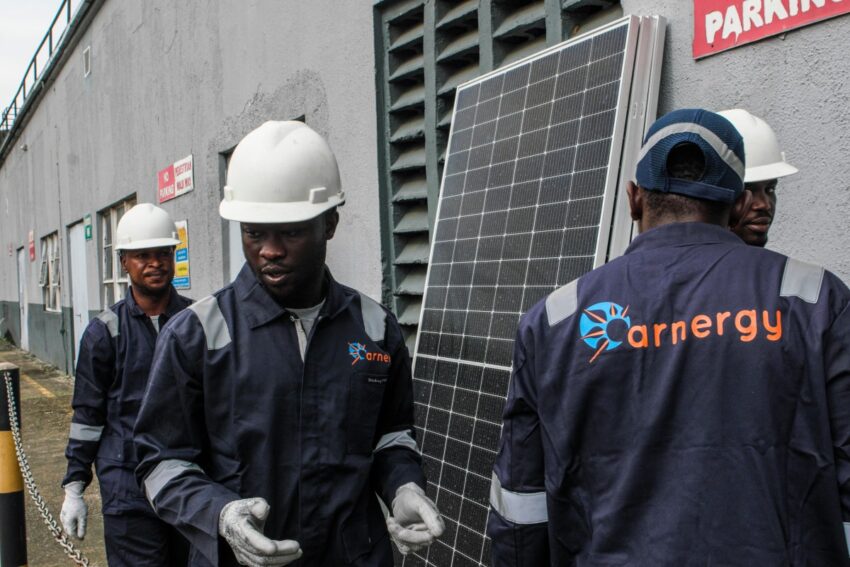Demand for solar energy in hungry Nigeria has increased over the past decade due to grid reliability and rising fuel costs. Investors’ interest has been brought towards arnergyA clean tech startup meeting that is needed. The company only collected Million 15 million Series B Extension (Top) A million 3 million b1 round Last year), for its round, its total million is reaching 18 million.
This increase in demand for solar system follows important policy shifts, especially Nigeria’s decades ending old fuel subsidy In May 2023 (under the government’s decision – discussed – included its process to meet the gap between global and local fuel prices.
Since then, petrol prices have increased by about 500 %, making power generators, which is once seen as a more cheap alternative to incredible grid power and solar systems despite environmental risks, which is much more expensive to run.
Over time, Arnerjee’s pitch has changed. Founder and CEO, the founder and CEO, “When we started a business, we used to position the solar as a way to gain uninterrupted power. Fema Ademo Tell the Tech Crunch. “Now, because we can clearly show users how our systems save them monthly, whether they use gasoline, diesel, or even grid.”
Edimo started Erniji in 2013 to provide solar systems to homes and businesses in areas such as hospitality, education, finance, agriculture, and health care.
What began as a game of flexibility is now the cost savings strategy that changes the economy of adoption for clean -tech Bill Gates’ progress energy projects (Led by firm Ernerjee’s Million 9 million Series A In 2019).
Liz To -Tap a growing lap
The company’s lease -to -up is clear in its products. Z LiteWhich became a basic focus on the following Ernerjee’s first series B TRACH Last year
Although sheer purchases contain 60 % to 70 % income in 2023, they only contributed 25 % of the sales last year. On the other hand, lease -to -one, where consumers pay fixed monthly fees during 5 to 10 years before the system is owned, has earned more traction.
One of the reasons for this change compared to electricity prices is cheaper. Until recently, many people considered long -term leases expensive than diesel or petrol generators. But with diesel prices removal after subsidy and climbing grid prices, especially after a new government policy last April Electricity consumption costs increased threefold for highly stable power consumersEdimo says, lease to a solar users is becoming popular.
The CEO said, “Imagine the payment of 000 200,000 (~ 125) for electricity every month. With our products, which falls to 000 96,000 (~ 60). In five years, it is an intelligence that you will save,” the CEO said. He added that many existing Grahs are returning to double their solar capacity or consequently to change the off grid.
Arnerjee increased his lease customer base three times between 2023 and 2024 and is expected to increase by 4-5x this year. Naira’s income has climbed accordingly and has reached the square by the end of the year.
On the other hand, the dollar’s income has been flat due to a decline in currency value, but Ademo said the company is earning FX revenue through the dollar -linked B2B2C partnership and a possible expansion of Frankophone Africa.
Scaling between another government policy
So far, Arnerjee has deployed more than 1,800 systems in 35 Nigerian states, with a total of 9 MWP solar and 23 MW battery storage.
Ernari plans to use his new funding, which led to the Nigerian private equity firm Cardinolistone Capital Advisor (CCA) installed more than 12,000 systems by 2029.
But a strategic shift is needed to target this goal. For almost a decade, Arnerjee handled sales at home. Now, it is adopting a model -driven model with business clients and physical retail shops out of Lagos to reach more and more consumers in the Nigerian Power Stard market.
Ademo says Lagos -based clean -tech bank and DFI are talking to lift additional local loans to support projects, including a service (EAAS) solution as energy for multinationals.
Nevertheless, when Erneri is preparing to scale, a proposed policy could endanger its pace.
Last month, the Nigerian government Announced plans to ban solar panel imports To promote local manufacturing. The move has caused a response from stakeholders who argue that domestic capacity is not ready.
Ademo agrees with the purpose, but not the point. He warned that premature restriction could prevent an industry that only lands down.
According to the CEO, Nigeria needs to create an environment with the right infrastructure, policy stability, and access to capital so that local factories can increase over the next 3 to 5 years. Only then should the country start thinking about eliminating imports.
He remarked, “We advocate for local manufacturing.
